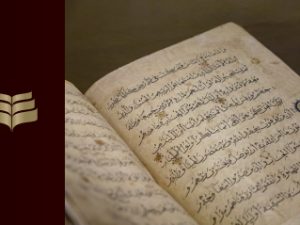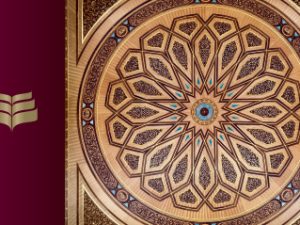Al Bayquniyyah
- Description
- Curriculum

The Sunnah of the Prophet (صلى الله عليه وسلم) is a source of legislation in our Sharee’ah. Allaah says, “O you who have believed, obey Allaah and His Messenger and do not turn from him while you hear [his order]” [8:20]. In order to obey the Prophet (صلى الله عليه وسلم) we have to receive his message but how can we determine if these words are really from him (صلى الله عليه وسلم)?
Unlike the Qur’aan, the authenticity of the Sunnah must be verified before it is used as proof. This is because there are many weak and fabricated narrations which have been falsely attributed to the Prophet (صلى الله عليه وسلم). In this course you will study the knowledge of the principles and rules that differentiates between the narrations that were authentically transmitted from the Prophet (صلى الله عليه وسلم) and those that have been falsely attributed to him.
In this course you will learn the following:
– What is the importance of learning this knowledge?
– What is the meaning of: Isnaad and Matn?
– What are the different types of narrations?
– What are the categories of the hadeeth as regards the state in which it reaches us?
– What are the various levels of authenticity in hadeeth?
– What are the conditions establishing a hadeeth to be saheeh?
– How do the conditions of saheeh narrations differ from the conditions of hasan narrations?
– What is hasan li-ghairihi?
– When can a defect affect the authenticity of the hadeeth?
– Can we accept weak (da’eef) narrations?
– What renders a narration weak (da’eef)?
– What is hadeeth mashhoor?
– Is hadeeth musalal concerned about the matn or the isnad of the narrators?
This course is based on an explanation of the book Al-Manthumah al-Bayquniyyah by Shaykh Muhammad ibn Saalih al-‘Uthaymeen (d. 1421H). Al-Manthumah al-Bayquniyyah is a didactic poem regarding the classification of hadeeth.
-
1Al Bayquniyyah - Lesson 1
-
2Al Bayquniyyah - Lesson 2
-
3Al Bayquniyyah - Lesson 3
-
4Al Bayquniyyah - Lesson 4
-
5Al Bayquniyyah - Lesson 5
-
6Al Bayquniyyah - Lesson 6
-
7Al Bayquniyyah - Lesson 7
-
8Al Bayquniyyah - Lesson 8
-
9Al Bayquniyyah - Lesson 9
-
10Al Bayquniyyah - Lesson 10
-
11Al Bayquniyyah - Lesson 11
-
12Al Bayquniyyah - Lesson 12
-
13Al Bayquniyyah - Lesson 13
-
14Al Bayquniyyah - Lesson 14
-
15Al Bayquniyyah - Lesson 15
-
16Al Bayquniyyah - Lesson 16
-
17Al Bayquniyyah - Lesson 17
-
18Al Bayquniyyah - Lesson 18
-
19Al Bayquniyyah - Lesson 19
-
20Al Bayquniyyah - Lesson 20






